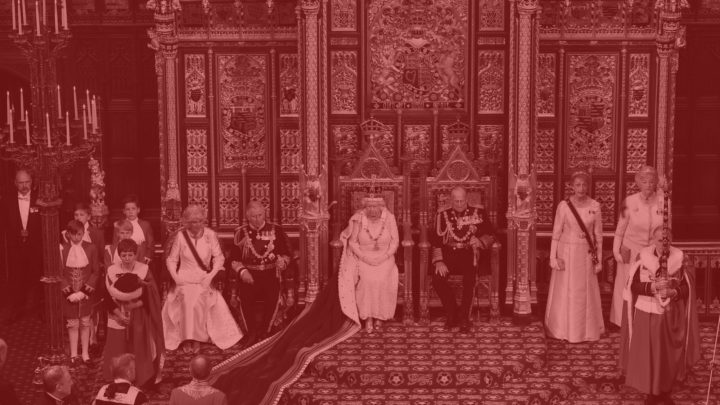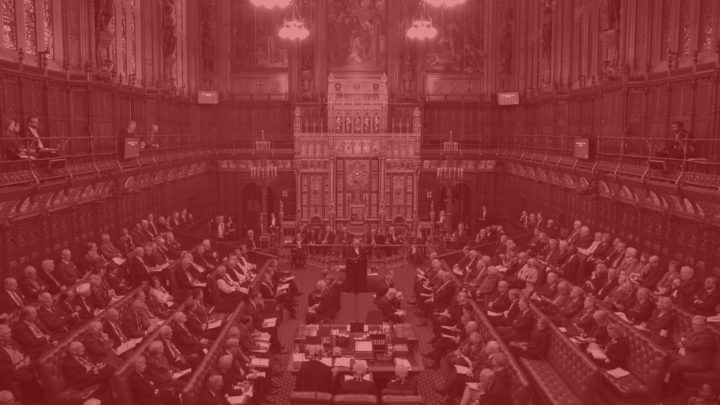
Beyond Brexit:
A programme for democratic reform
Democracy: the unfinished revolution
spiked launches its programme for radical democratic reform.
The 2016 vote for Brexit, and the political establishment’s increasingly unhinged reaction to it, revealed many things about life, society and politics in the early 21st century. But perhaps Brexit’s most important revelation, its most enlivening revelation, has been this: that democracy remains the most revolutionary political idea of all.
Still. Two millennia after it first crossed men’s minds. A couple of hundred years after it was instituted in a meaningful way in Western nations. And one hundred years after working-class men and some women in the UK finally won the franchise. Even after all of that, still no political idea is as disturbing to the political elite as the one that says the woman who cleans their parliamentary office or their university lecture hall or their high-rise boardroom should have the exact same power as them when it comes to determining the political future of the nation.
It’s an idea that horrifies them. They cannot fathom that any civilised society would entertain it, not really. They kept their horror well-hidden for most of the postwar period, when democracy consisted of little more than ordinary people having a say once every four years over which party should run society. But with Brexit, when we used the franchise not simply to change the overseers of political life but to change political life itself, their horror at the temerity of the democratic ideal came back to life. And it has dominated political discourse ever since.
The elites have reorganised themselves almost entirely around their contempt for democracy. You see it all the time. In Richard Dawkins’ suggestion that there should be an IQ test for voting. In the House of Lords’ arrogant claim that it falls to them, in their unelected but well-educated wisdom, to thwart this thing the dim-witted public voted for. In the Labour Party’s manifesto-betraying embrace of the idea of a second referendum. In the liberal media’s undiluted fury with the throng which gives rise daily to raging missives against the ‘low-information’ public and open cries for government by expertise.
They want to reverse the gains of the democratic era, to curtail the democratic ideal. All because a vote – admittedly the most important vote of the modern era – did not go their way. We cannot let them get away with this. Because far from democracy needing to be reined in, it needs to be unleashed, deepened, expanded, made real and meaningful and powerful. We don’t need less democracy – we need more.
The Brexit earthquake may have given us a glimpse of the fury of the elites when politics doesn’t go their way. But it has also revealed a public desire for greater democratic accountability. For the stripping away of the layers of unaccountable bureaucracy that the EU machine attaches to political life in the UK, and in every other member state. And for a truer form of popular sovereignty in which people’s ability to impact on the political future of the country they live in might become a real, tangible thing.
This is an opportunity we should seize. In this era of democratic hunger, the case should be made not simply for leaving the EU, but for dismantling all the other ways in which the people’s will is filtered, tempered, hampered and, in many cases, outright thwarted. Not just the EU but every institution that is unaccountable to the people and yet has the power to stymie the people’s political wishes must now be called into question.
To that end, spiked is launching a programme of radical democratic reform. Fighting for Brexit remains the priority, but we must also look beyond Brexit and make the case for reforms that will disempower unelected elites and empower the public. Over the next five weeks we will outline our five key cries – listed below – and after that we will publish a series of essays and articles making the case for popular sovereignty, democratic engagement, a philosophy of nationhood and a universalism based on democratic nations, not unaccountable global elites.
To kick off, here are the five reforms spiked thinks we need now to start the process of energising popular democracy. Over the next five weeks, one of our writers will expand on these five points. And we want to hear what you think, too. Comment and let us know!
1) Leave the EU
This remains a must. The people – the largest number of voters in UK history – demanded an end to the UK’s membership of the EU, and that must be acted upon – no ifs, no buts, no backtracking and no betrayals. The EU stymies national democracy – breaking away from it is a first key step towards enlivening popular sovereignty.
2) Abolish the House of Lords
It is an outrage that the UK has an unelected second chamber that pores over legislation drawn up by people we elect. The Brexit quake has exposed just how rotten and archaic the Lords is. From Baroness Wheatcroft openly admitting she wants to block Brexit to the fact that one in eight peers in the 800-strong Lords is a Remoaner Lib Dem – even though us voters returned just 12 Lib Dem MPs in the General Election of 2017 – the anti-democratic nature of the Lords has become clear for all to see. It has to go.
3) Abolish the Royal Prerogative
This archaic device that allows ministers to behave like monarchs is an offence to democracy. The Royal Prerogative is the notion that there are some things so pressing and profound – like declaring war or signing certain treaties – that they may be done in the name of the monarch without recourse to parliament. But the presumed wishes of an unelected head of state should never override the right of the public or our elected representatives to a genuine, determining say in matters of war and diplomacy. The prerogative is for the dustbin of history.
4) Bring in proportional representation
Our first-past-the-post system is one of the least democratic in the Western world. It implicitly disenfranchises large sections of the electorate through conspiring to the keep the people and ideas they vote for out of the political system. It is outrageous that UKIP won nearly four million votes in the 2015 General Election but got just one seat in the Commons. Under PR, it would have got more than 80. PR would give rise to a parliament more directly representative of the people. And it would encourage people to experiment with setting up new parties because they’d know that breaking through to the Commons was finally possible.
5) Kick judges out of politics
Judicial interference in the political system is one of the newer ways the elites meddle in issues that ought to be decided by the public and the people we elect. From their rulings on immigration law to the way they’ve been invited to rule on whether or not the 2016 referendum was ‘legal’, judges are being called on far too often to decide the fate of political life itself. They should stick to the law and leave matters of governance to the people and our representatives.
Brendan O’Neill is editor of spiked and host of the spiked podcast, The Brendan O’Neill Show. Subscribe to the podcast here. And find Brendan on Instagram: @burntoakboy
To enquire about republishing spiked’s content, a right to reply or to request a correction, please contact the managing editor, Viv Regan.









Comments
Want to join the conversation?
Only spiked supporters and patrons, who donate regularly to us, can comment on our articles.